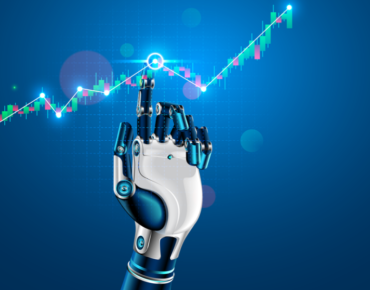Fuji America Joins Motus Ventures to Invest in AI Robotic Startups

via Shutterstock
The integration of AI with robotics applications continues to attract tech investors who presumably sense that machine learning tools can help transform static industrial robots into agile assemblers of different products in varying volumes.
The latest example is a collaboration between automated manufacturing giant Fuji America Corp. and Motus Ventures, an early stage investor and “business accelerator” targeting autonomous technologies. The partners said this week that Fuji is joiniing the Motus Smart World Innovation Fund (SWIF) to invest in startups focused on marrying AI technologies with industrial robotics.
The U.S. arm of Japanese machinery manufacturer Fuji Corp. (TYO: 6134) also announced the establishment of a technology lab in Silicon Valley that is focused on integrating autonomous capabilities for industrial and logistics applications. Industry analysts note that those and other sectors are steadily embracing AI technologies as a way of making industrial robots more flexible, a key requirement as they move up the value chain to tackle final assembly tasks.
Motus Ventures has previously funded startups developing industrial robotics, semiconductors, sensor and transportation technologies. Fuji and Motus previously invested together in RIOS.ai, a Silicon Valley startup developing “dexterous AI-powered robots” aimed at factory assembly lines and warehouse logistics.
These and other AI robotics startups are using machine learning platforms to advanced human-machine collaboration on the factory floor and other settings. In manufacturing, human operators could manage and orchestrate automated workflows as robotic assemblers become more adept, according to Kevin Prouty, an energy and manufacturing analyst with IDC.
Venture backers, many with ties to the heavily automated car manufacturing sector, are pouring funds into startups marrying AI and other decision-making tools with robotics. Last week, startup Symbio Robotics announced a $30 million funding round along with partnerships with Nissan Motor Corp. (OTCMKTS: NSANY) and Toyota Motor Corp. (NYSE: TM).
For now, manufacturing robots remain static, with manipulators geared to specific tasks. AI can be used to “expand their ability to change on the fly,” switching from one assembly task to another, said IDC’s Prouty.
AI has already established itself in the energy sector for “process optimization,” but remains harder to implement for discrete manufacturing. Shorter product cycles and the need to scale volume up or down is forcing auto makers to embrace AI-based factory automation.
Machine learning models leveraging huge data sets can be used to help reprogram robots to perform a variety of tasks beyond standard welding and painting operations, Prouty said. That would open up new final assembly use cases.
While investment deals like the Fuji-Motus collaboration illustrate how venture funds are targeting robotics AI, Prouty predicts industrial automation giants like Fuji and Siemens—itself an early adopter of deeply embedded AI technologies—will eventually acquire a growing list of well-heeled robotics startups.
Those acquisitions could help transform Industry 4.0 from a marketing campaign to a factory-floor reality, Prouty predicted.
Related
George Leopold has written about science and technology for more than 30 years, focusing on electronics and aerospace technology. He previously served as executive editor of Electronic Engineering Times. Leopold is the author of "Calculated Risk: The Supersonic Life and Times of Gus Grissom" (Purdue University Press, 2016).











